
This month's selection includes completely different solutions — from community support for students and giving toys to children to solutions for construction from garbage and schoolchildren's initiatives. The heroes of these solutions are children, teenagers, adults, and older people. And this once again proves that everyone can create changes around them. Let this thought inspire us and push us to action. After all, we create the present and the future — right now.
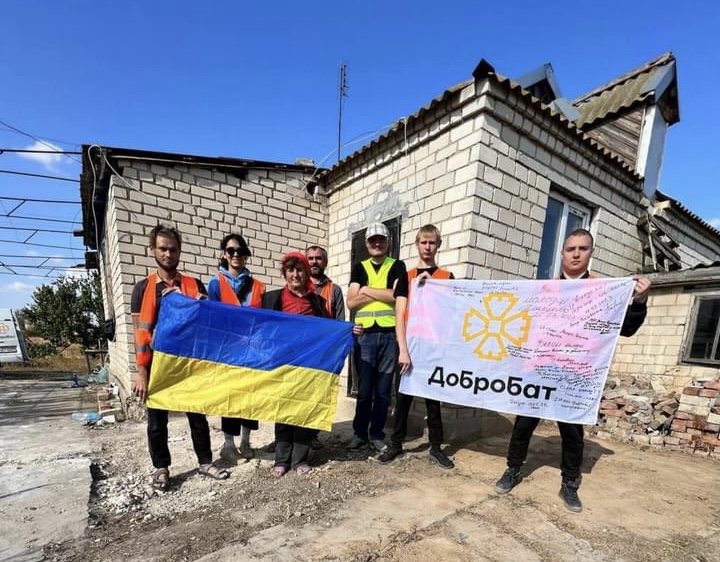
As early as the summer of 2023, the number of damaged houses of Ukrainians was counted. This figure was more than 163 thousand. The total area of damaged or destroyed objects is 87 million square meters. This is 8.6% of the total area of the housing stock of Ukraine. Hundreds and thousands of homes of Ukrainians, which were damaged as a result of the Russian occupation and shelling, need urgent restoration. The amount of destruction increases daily because the attacks of the Russian army on civilian objects do not stop.
Contrary to the destructive actions of the aggressor, Ukraine continues to rebuild. Participants of the volunteer construction battalion Dobrobat are helping residents rebuild their homes in the liberated territories — in the Kyiv, Chernihiv, Sumy, Kharkiv, Mykolaiv, Zaporizhzhia, and Kherson regions. Among its tasks is the reconstruction and improvement of social infrastructure facilities.
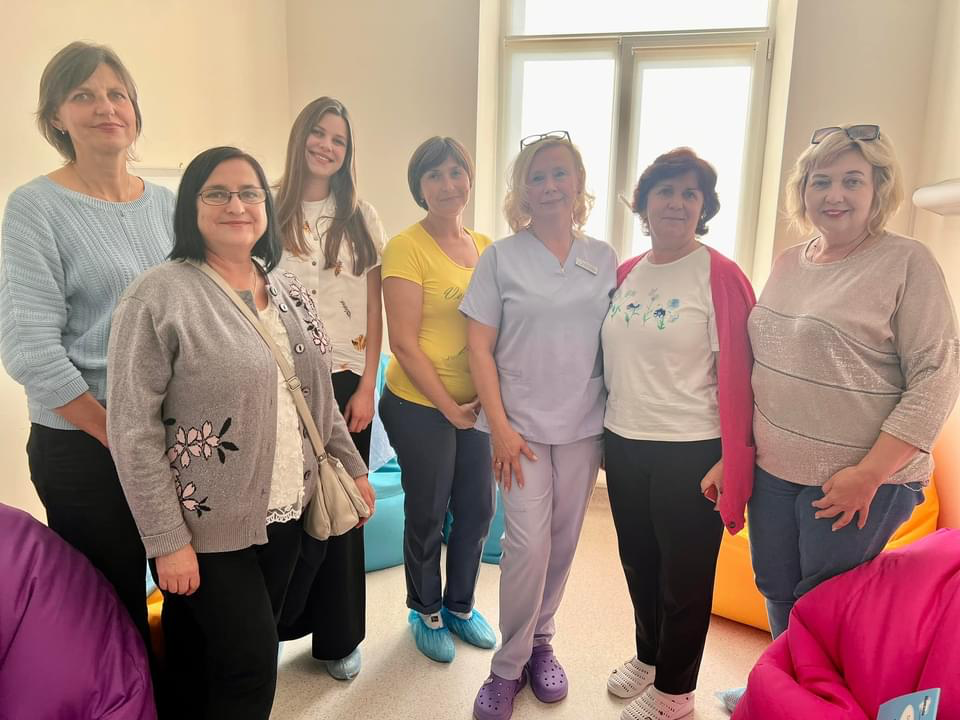
Incredible grandmothers of an incredible maternity hospital. Photo: LRCH maternity hospital
Despite the war, losses, worries, and endless air alarms, children continue to be born in Ukraine. Often, the older generation, having their own experience, is ready to help young families and take on the lion's share of caring for babies. However, since our grandmothers were young mothers themselves, a lot has changed: ways of caring for children, technology, feeding and cooking, the view of child safety, and much more. Modern parents do not always trust the previous generation's experience, but despite everything, grandmothers want to share their knowledge. Sometimes, because of this, misunderstandings and even conflicts can arise in families.
In the maternity hospital of the Lviv Regional Clinical Hospital (LRCH), they decided to break stereotypes and introduced courses for grandmothers. There, future grandmothers are taught how to help care for their grandchildren after being discharged from the maternity hospital. At practical classes, expectant grandmothers are taught exclusively modern and proven options for caring for babies.

For many women, City of Goodness often becomes a chance and hope. Photo from the archive of the organization.
The war did not cancel domestic violence. In 2022, the police and social protection authorities received 251,829 complaints about domestic violence. Of these, 244,381 applications and notifications of criminal offenses were registered. This is 25% less than in 2021. However, experts say there is no point in rejoicing over the decrease in appeal statistics.
Many women, and according to the YurFem Analytical Center, 96% of victims of domestic violence are women today, have fewer opportunities to appeal. Because of the war, they have become less mobile, and they are even more dependent on the offenders physically and materially. Often, women are confused and believe that today, it is simply not the time to voice their problems and ask for help.
Since July 2023, the Women's Rights Protection Department has been operating in the crisis center for women with children, City of Goodness, in Chernivtsi. It was created to provide comprehensive assistance to women affected by domestic violence. Lawyers, psychologists, and doctors work with women here. Women are also taught financial literacy and independence.
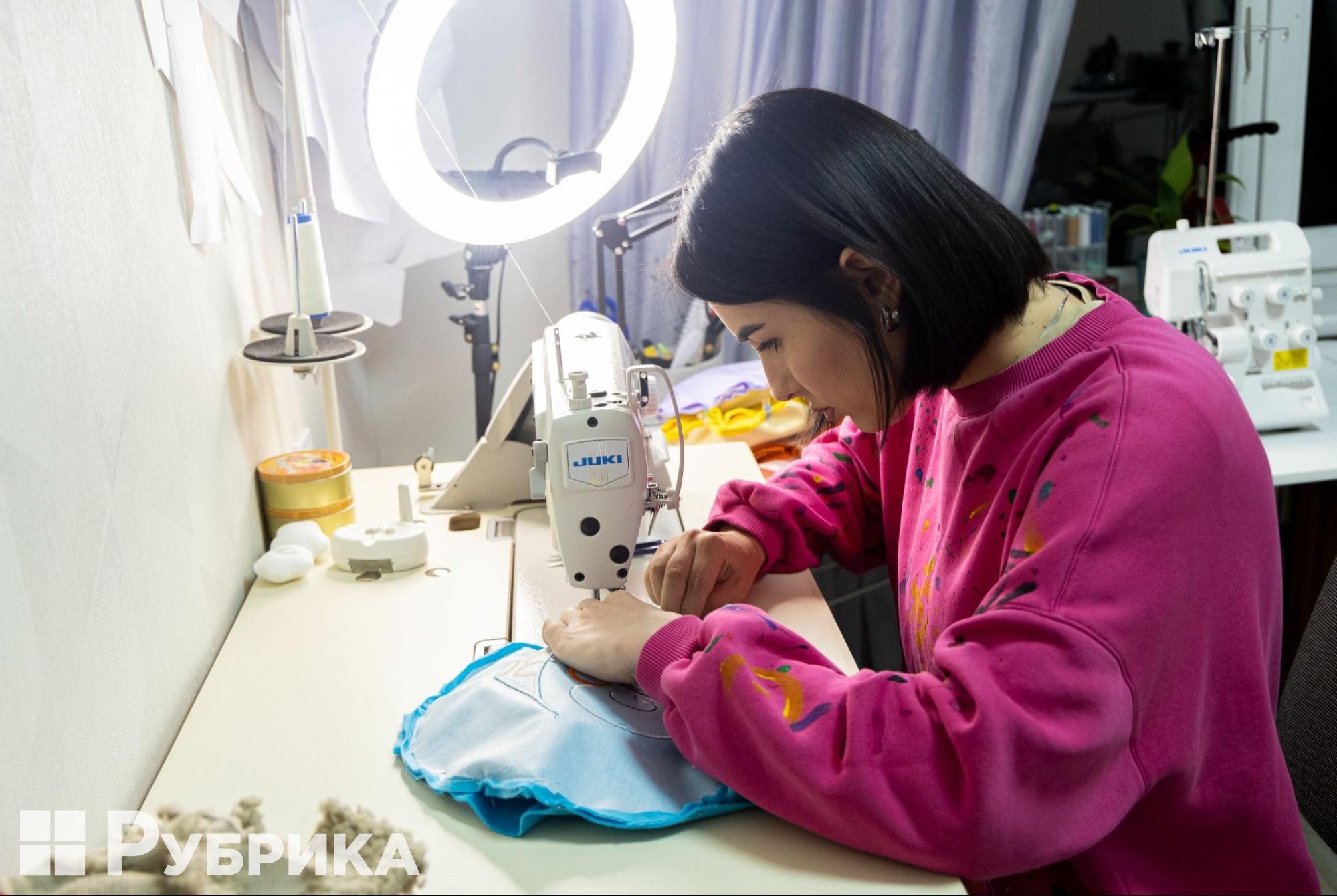
90% of female entrepreneurs noted that the war in Ukraine impacted their business. Moving to an unknown city, trying to get back on your feet and financially support yourself, and fear for your family and employees are just some of the factors that business owners face.
Ukrainian entrepreneurs are female titans who, despite all the difficulties, continue to run their businesses and support the country economically. When you start your own business, you calculate the most minor risks. However, it is impossible to take into account the war. Having come face to face with it in the occupied or front-line territories, you have to solve completely different problems than those for which you were prepared and also face the greatest fears and challenges. Rubryka spoke to three women who, despite everything, found the strength to resume their business.
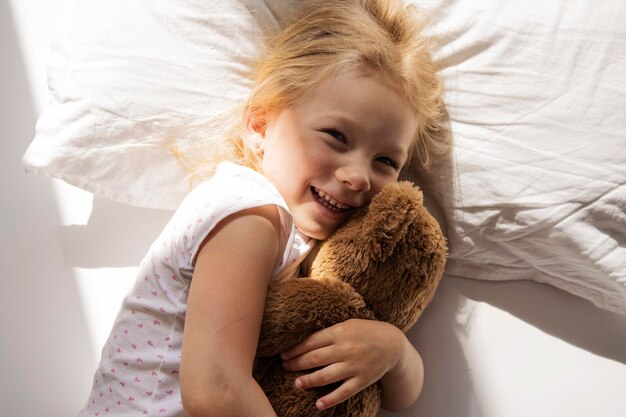
Almost 5 million Ukrainians are internally displaced persons. As a result of the Russianaggression, numerous Ukrainian families were left homeless and had to struggle to makeends meet, barely able to afford basic essentials. With such limited resources, children'stoys become a luxury that cannot be afforded. After all, when one's budget is solelydedicated to covering housing and food expenses, who has time to think about leisureactivities?
The Find Refuge social network launched the Circle of Toys children's project. The project's goal is simple but very meaningful — to connect people who have used toys in good condition (or can buy new ones) with children who, unfortunately, can only dream about them now.

In the photo: Participants of the event at KPI. Envelopes are held by those who have volunteered to become a potential donor. Photo from the Facebook page of the Ukrainian Register of Bone Marrow Donors
There are about 30 diseases for which hematopoietic stem cells (in simple words, bone marrow) are considered to be almost the only source of patient salvation. These are acute leukemia, multiple myeloma, plasma cell leukemia, Hodgkin's lymphoma, non-Hodgkin's lymphomas, L-amyloidosis, and POEMS syndrome. Also, bone marrow transplantation is the only radical way to treat most of the most severe types of primary immunodeficiency.
Many of us can donate not only our blood but also our bone marrow. To do this, the first important step is to join the registry and become a potential donor. And then, perhaps, months or years later, your DNA will match a patient from Ukraine or another part of the world, and you will help save that person's life. Rubryka explains how to become a potential bone marrow donor and how the donation process itself goes.
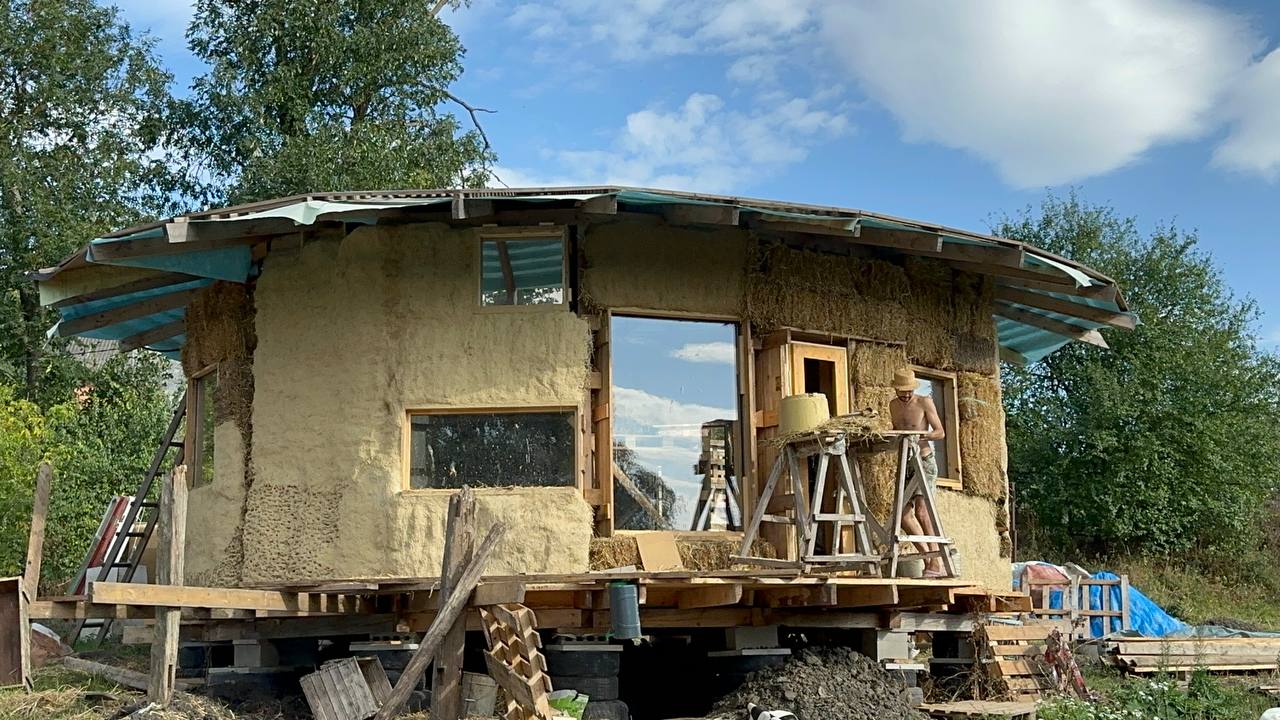
Since the beginning of the full-scale war, the main problem of IDPs remains housing, which people lost due to Russia's attack on Ukraine. In a new place, resettlers find accommodation with relatives and friends, invest all available resources in renting an apartment, and some can only rely on the help of benefactors or communities that sheltered them. Mostly, people who fled the war with as much as one suitcase can only dream of their own homes.
Building a house even without significant savings is possible, says designer Lana Teslenko, an IDP from Kharkiv. A year ago, having moved to Khmelnytskyi without housing, income, and moral support, she believed that creating "something out of nothing" was possible. With her husband, an architect by profession, Teslenko decided to build a house from the waste they found at a local dump.
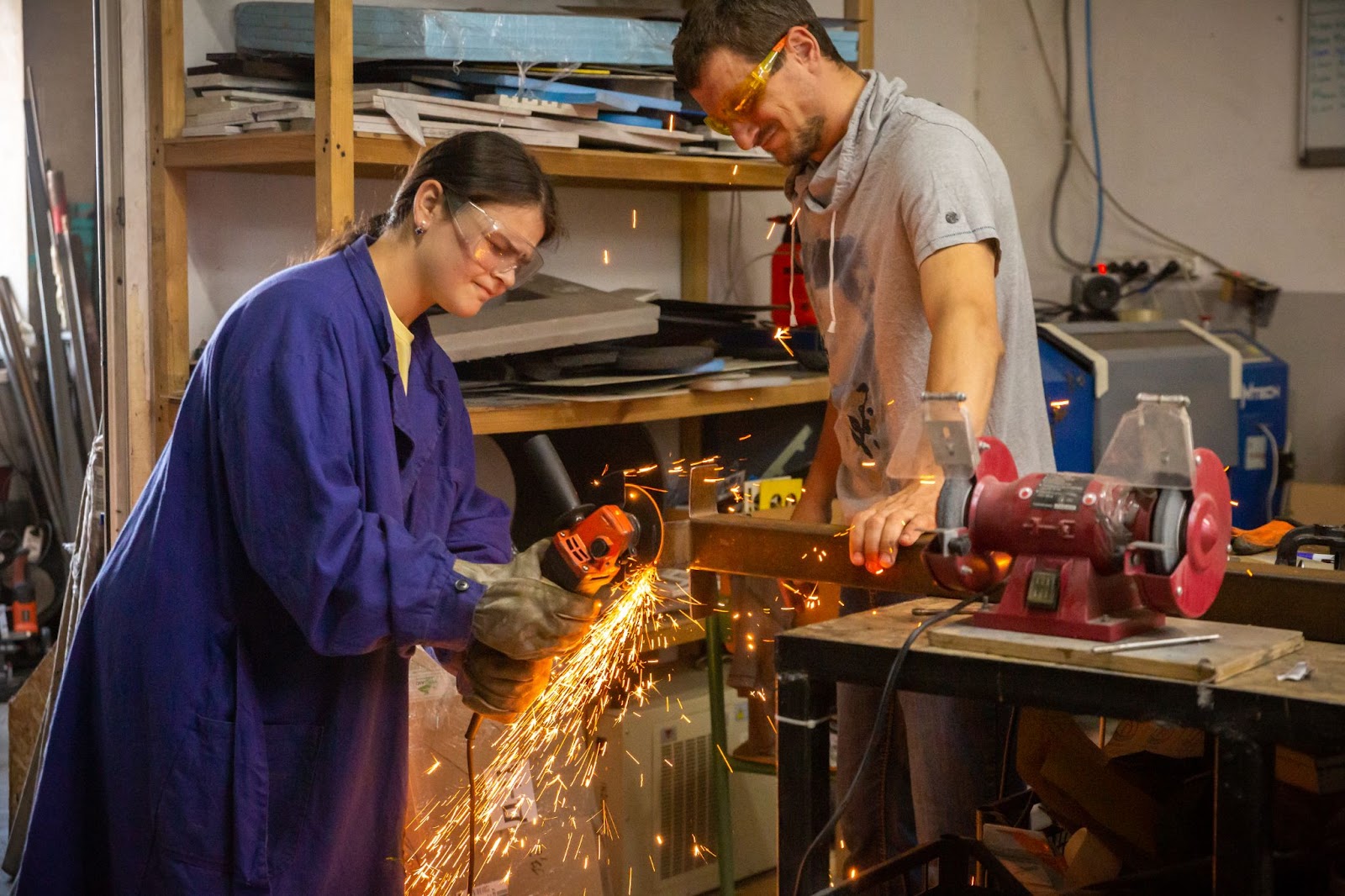
Ukraine's communities are anxiously waiting for post-war reconstruction, but waiting for war to end to get started is not good enough. Many things can already be improved today, and Ukrainian youth understand this very well. A survey conducted on behalf of the International Republican Institute within the framework of the USAID Dream and Act program found that 79% of respondents would like to stay in Ukraine and participate in the reconstruction process.
Ukrainian teenagers can, know how and want to be creative and work for Ukraine to recover and change for the better. Change starts with an action plan – and that's the name of the educational program for students of grades 8-11 who want to participate in the reconstruction of Ukraine.
Plan.DIY is a bilingual play on words, mixing DIY (do it yourself) — and "diy," which means "act" in Ukrainian. The project is a call to act in response to local problems here and now, with a clear view of the future. The program's purpose is to satisfy the desire of teenagers and young people to be involved in the country's reconstruction, and equip them with all the necessary knowledge and skills.
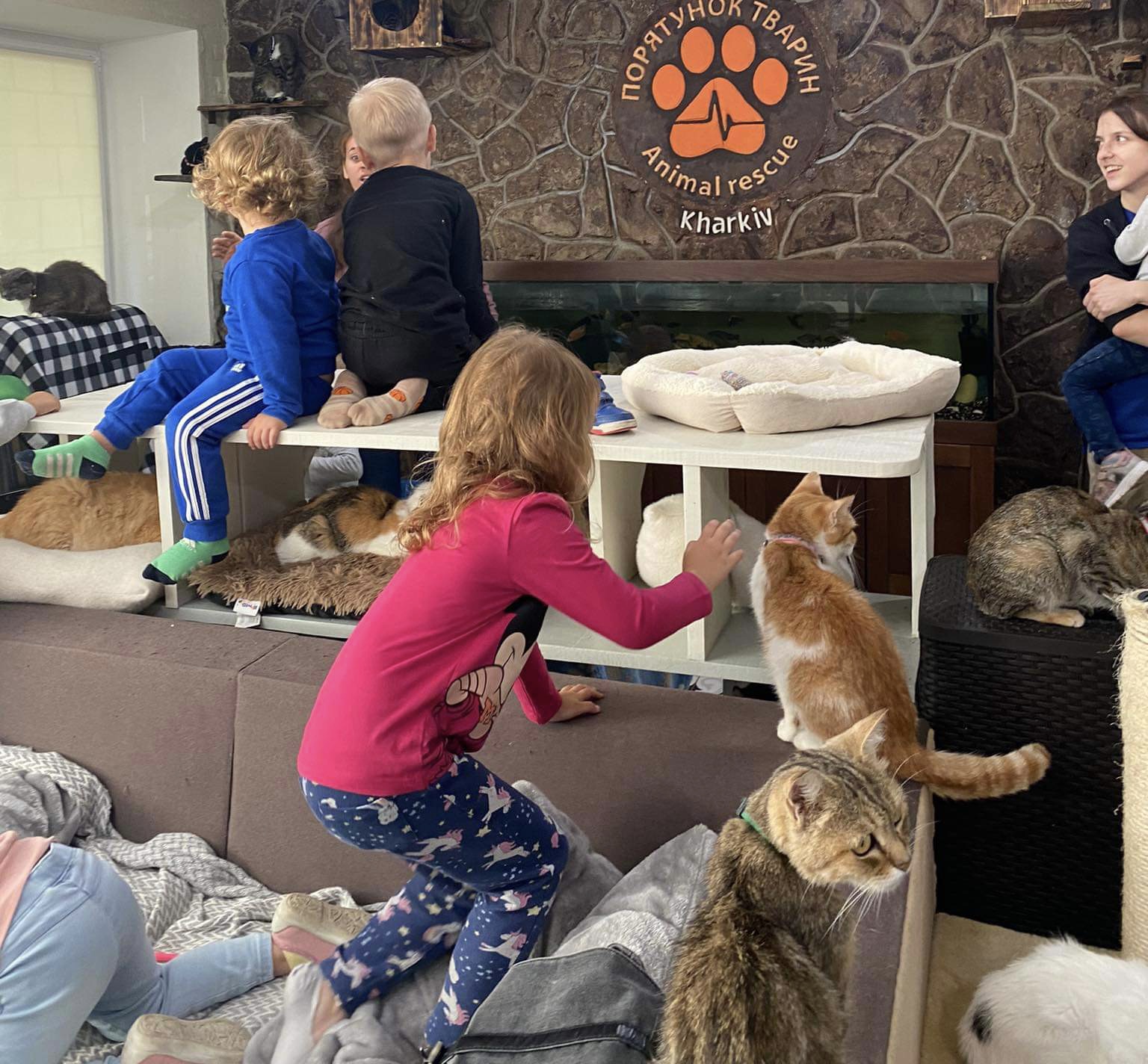
Children play and communicate with cats. Photo: "Animal Rescue Kharkiv"
According to the Ministry of Health, at least 60% of Ukrainians need psychological support due to Russia's aggression. But people who have been under constant stress for more than a year and a half are not the only ones who need help. Along with people, animals also suffer from war.
At first, the non-governmental organization Rescue Animals Kharkiv only rescued animals from the war zone. Then, the volunteers came up with the idea of setting up a contact room where you can come and be surrounded by animals, calm down, and distract yourself from stress. Now, thanks to the Little Prince contact room, people find a little more reason to be happy, and four-legged friends find a home. Rubryka tells about this solution.
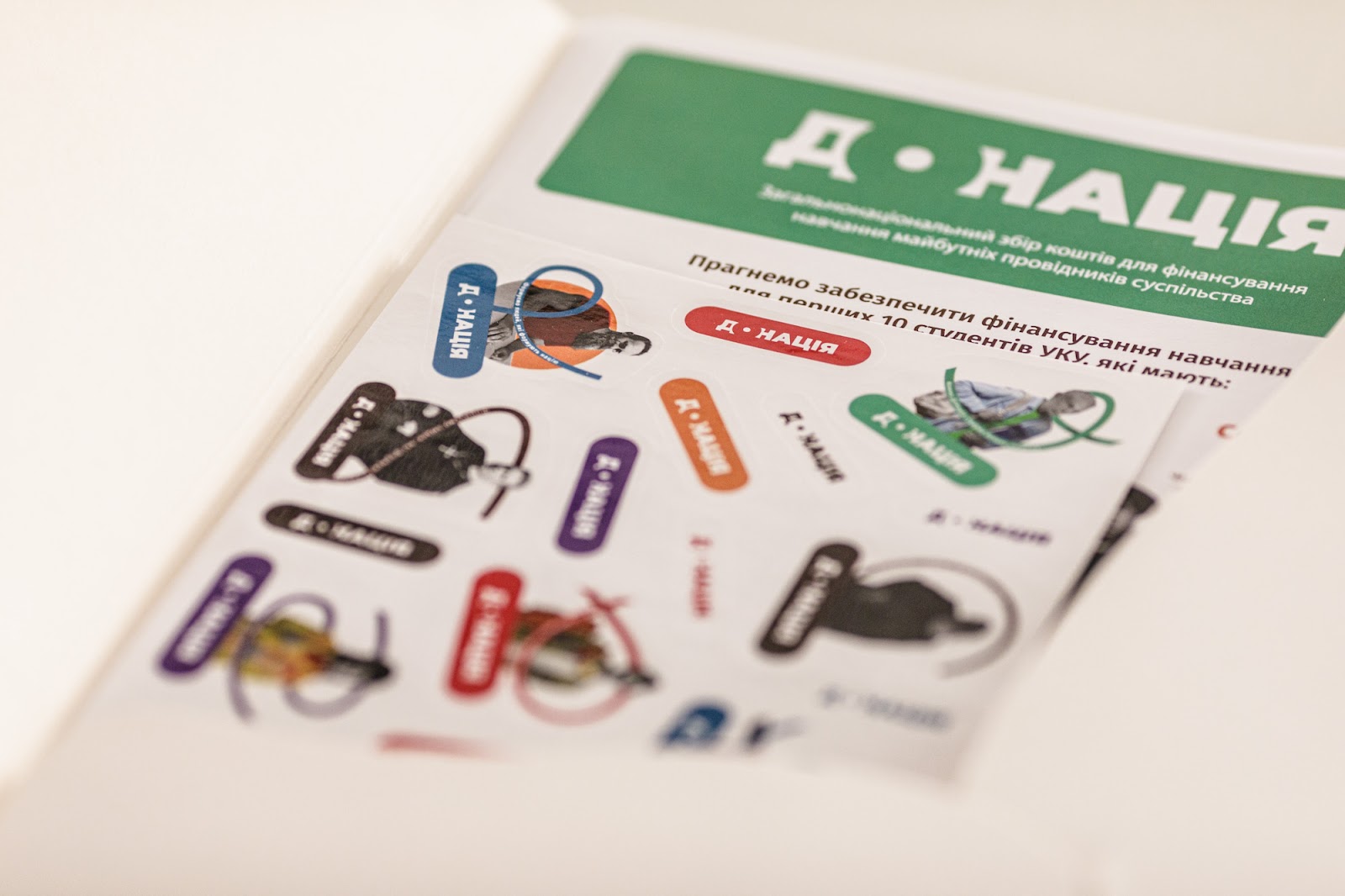
Photo: UCU
Quality education is expensive. Not all talented Ukrainians have access to it and, therefore, to the disclosure of their potential. If education is free for a student, it means someone is giving their money for it: the state or benefactors. Ukrainian higher education is characterized by state scholarships — a budgetary form of education funding when the state pays for it. However, this is not the only solution, moreover, during the war.
Supporting education is the way to the formation of the Ukrainian nation. Supporting talented youth is a contribution to Ukraine's future. An interesting solution, how everyone can support the education of Ukrainian youth, was found at the Ukrainian Catholic University (UCU).
They started a scholarship program there, which helps motivated students to get a quality education for free or at a significant discount. The DoNation project is not just a fundraiser but an invitation to solidarity with talented students for whom education is a challenging financial challenge.
Other universities and educational programs can implement a similar solution, and Rubryka explains how it works.







